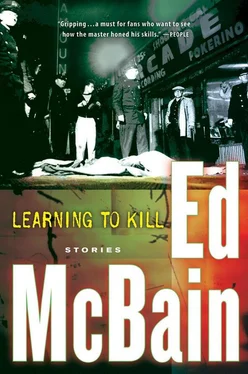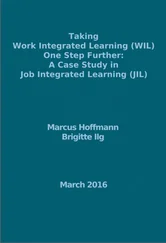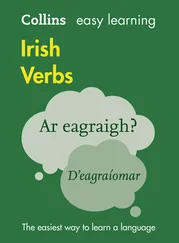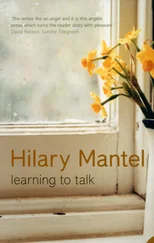“Agnes,” I yelled, “there’s a submachine gun in the closet. Get it! And bring the hand grenades and the mortar shells.”
“Yes, Dud,” she murmured.
I kept firing. Three down, four down, five down. I reloaded, and they kept coming up the walk and I kept cutting them down. And then Melinda came back with the ammunition. I gathered up a batch of hand grenades, stuck four of them in my mouth, and pulled the pins. I grabbed two in each hand and lobbed them out on the walk and six more of the rats were blown to their reward. I watched the bodies come down to the pavement, and I took a quick count of arms and legs. It had been seven of the rats.
“Seven and five is thirteen,” I told Melinda. “That leaves eleven more.”
Melinda did some quick arithmetic. “Twelve more,” she said.
I cut loose with the submachine gun. Kill, kill, my brain screamed. I swung it back and forth over the lawn, and they dropped like flies. Fourteen, fifteen, sixteen. Nine more to go. Seventeen, eighteen, and they kept dying, and the blood ran red on the grass, and the flames licked at my back. They all ran for cover, and there was nothing to cut down, so I concentrated on a clump of weeds near the barn, shooting fast bursts into it. Pretty soon there were no more weeds, and the barn was a skeleton against the deepening dusk. I grabbed a mortar and tossed it into the yard, just for kicks. Pretty soon, there was no more barn. Behind me, I heard Melinda scream. I whirled. Her clothes were aflame, and I seized her roughly and threw her to the floor. I almost lost my mind, and I almost forgot all about the nine guys still out there. I tore myself away from her, and I ran into the yard with two mortar shells in my mouth, the submachine gun in my right hand, and the .45 in my left. I shook my head, and the mortar shells flew, and three more of the rats were dead and gone. I fired a burst with the machine gun, and another two dropped. There were four or five left now, and I picked them off one by one with the .45. The yard ran red with blood, and the bodies lay like twisted sticks. I sighed heavily and walked back to the house because the worst part still lay ahead of me.
I found her in the bedroom.
She had taken a quick sponge bath, and her body gleamed like dull ivory in the gathering darkness.
“All right, Agnes,” I said. “It’s all over.”
“What do you mean, Dud?”
“The whole mess, Agnes. Everything, from start to finish. A big hoax. A big plot to sucker Dudley Sledge. Well, no one suckers Sledge. No one.”
“I don’t know what you mean, Dud.”
“You don’t know, huh? You don’t know what I mean? I mean the phony story about the bank job, and the ten million dollars your husband left you.”
“He did leave it to me, Dudley.”
“No, Agnes. That was all a lie. Every bit of it. I’m only sorry I had to kill twenty-six bird-watchers before I realized the truth.”
“You’re wrong, Dudley,” she said. “Dead wrong.”
“No, baby. I’m right, and that’s the pity of it because I love you, and I know what I have to do now.”
“Dudley...” she started.
“No, Agnes. Don’t try to sway me. I know you stole that ten million from the Washington Avenue Bird Watchers Society. You invented that other story because you wanted someone with a gun, someone who would keep them away from you. Well, twenty-six people have paid... and now one more has to pay.”
She clipped two earrings to her delicate ears, snapped a bracelet onto her wrist, dabbed some lipstick onto her wide mouth. She was fully dressed now, dressed the way she’d been that first time in my office, the first time I’d slugged her, the time I knew I was hopelessly in love with her.
She took a step toward me, and I raised the .45.
“Kiss me, Dudley,” she said.
I kissed her, all right. I shot her right in the stomach.
She fell to the floor, a look of incredible ecstasy in her eyes, and when I turned around I realized she wasn’t reaching for the mortar shell on the table behind me. Nor was she reaching for the submachine gun that rested in a corner near the table. She was reaching for the ten million bucks.
There were tears in my eyes.
“I guess that’s the least I can do for you, Agnes,” I said. “It was what you wanted, even in death.”
So I took the ten million bucks, and I bought a case of Irish whiskey.
The four cop stories that follow were all published in Manhunt. The first three were published in 1953, the last one in 1954. The first two were by Evan Hunter, the next two by Richard Marsten. Go figure.
When I wrote these stories, Ed McBain hadn’t been born yet, and I knew nothing about cops or police routine except what I had learned from Dragnet on radio and television. I forget what Manhunt used to pay, but it couldn’t have been more than two or three cents a word, and that wasn’t enough to allow research. Whatever verisimilitude exists in these stories is entirely due to sleight of hand — and the fact that I once sold lobsters by telephone. They follow now in chronological order, no further commercial breaks.
* * *
Her face was small and chubby, the eyes blue and innocently rounded, but seeing nothing. Her body rested on the seat of the wooden bench, one arm twisted awkwardly beneath her soft little body.
The candles near the altar flickered and cast their dancing shadows on her face. There was a faded pink blanket wrapped around her, and against the whiteness of her throat were the purple bruises that told us she’d been strangled.
Her mouth was open, exposing two small teeth and the beginnings of a third.
She was no more than eight months old.
The church was quiet and immense, with early morning sunlight lighting the stained glass windows. Dust motes filtered down the long, slanting columns of sunlight, and Father Barron stood tall and darkly somber at the end of the pew.
“This is the way you found her, Father?” I asked.
“Yes. Just that way.” The priest’s eyes were a deep brown against the chalky whiteness of his face. “I didn’t touch her.”
Pat Travers scratched his jaw and stood up, reaching for the pad in his back pocket. His mouth was set in a tight, angry line. Pat had three children of his own. “What time was this, Father?”
“At about five thirty. We have a six o’clock mass, and I came out to see that the altar was prepared. Our altar boys go to school, you understand, and they usually arrive at the last minute. I generally attend to the altar myself.”
“No sexton?” Pat asked.
“Yes, we have a sexton, but he doesn’t arrive until about eight every morning. He comes earlier on Sunday mornings.”
I nodded while Pat jotted the information in his pad.
“How did you happen to see her, Father?”
“I was walking to the back of the church to open the doors. I saw something in the pew, and I... well, at first I thought it was just a package someone had forgotten. When I came closer, I saw it was... was a baby.” He sighed deeply and shook his head.
“The doors were locked, Father?”
“No. No, they’re never locked. This is God’s house, you know. They were simply closed. I was walking back to open them. I usually open them before the first mass in the morning.”
“They were unlocked all night?”
“Yes, of course.”
“I see.” I looked down at the baby again. “You wouldn’t know who she is, would you, Father?”
Father Barron shook his head again. “I’m afraid not. She may have been baptized here, but infants all look alike, you know. It would be different if I saw her every Sunday. But...” He spread his hands wide in a helpless gesture.
Читать дальше












